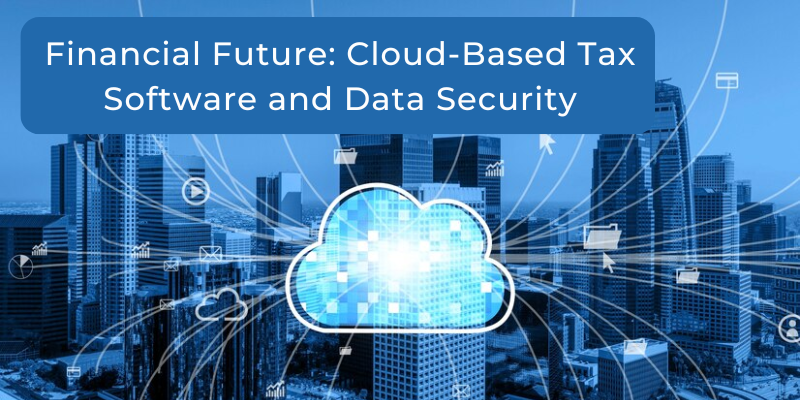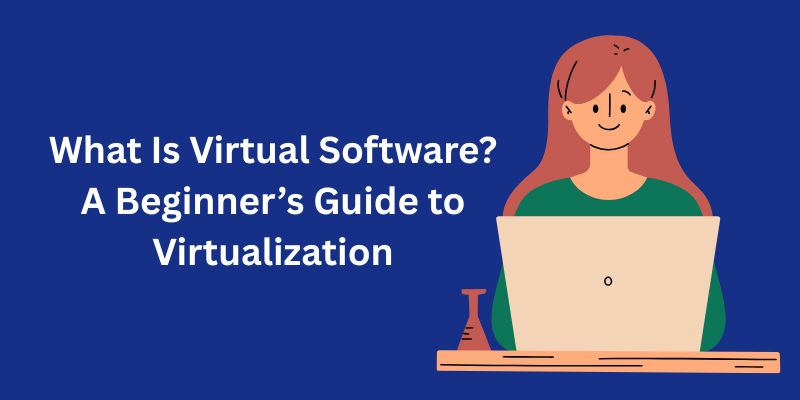Financial Future: Cloud-Based Tax Software and Data Security

Strong 8k brings an ultra-HD IPTV experience to your living room and your pocket.
In any organization, as it grows, it becomes crucial that it embraces technology in its processes for efficiency and security. Cloud-based tax software is one of them. It provides businesses of any size with the necessary tools to compete in today’s environment. It provides flexibility, integration, and data privacy that enable organizations to simplify the process of filing taxes and meeting regulatory requirements. However, in the process of migrating to the cloud, issues about security and execution arise, amongst others. This blog explores these areas and gives insights on why cloud hosted tax solutions are the way to go in the future.
Understanding Cloud-Based Tax Software
Cloud-based tax software refers to a system through which tax preparation, filing, and reporting are done on online platforms located on cloud servers. As opposed to the conventional software set-up that is installed locally, cloud-hosted solutions grant immediate access to data and help maintain collaborative functionality with scalability along with the safe storage of data on cloud. For any organization, specific features that can be used for scale-up and obtain the necessary data at any moment significantly help to improve its capabilities. By using the cloud-hosted tax solutions, businesses control their processes and increase the result quality, gaining the utmost freedom.
Key Benefits of Cloud-Based Tax Software:
Cost Efficiency: Conventional tax systems usually require considerable early investments in infrastructure and upkeep. Cloud-hosted software functions on a subscription model, minimizing expenses while providing enhanced scalability.
Accessibility: Cloud-hosted tax software enables users to access their data at any time, from any location, and on any device. This flexibility may be considered ideal for remote work settings or on-the-go decision-making.
Automatic Updates: Cloud service providers update their platforms on a regular basis to ensure adherence to the most recent tax laws and to give users access to the latest capabilities without requiring human interaction.
Disaster Recovery: The hosting services on cloud ensures seamless business continuity amidst technical failures or natural disasters by providing real-time backups and rapid recovery solutions.
Scalability: Cloud-hosted solutions enable you to readily scale resources to meet growing demands as your organization expands eliminating the need for fresh installations or new hardware investments.
Is Cloud Hosting Taxable?
The cloud hosting services liability for taxes depends upon local tax regulations. For example, in the United States, certain states have laws governing sales and use taxes that make cloud hosting taxable, while others do not. In order to ensure compliance, businesses and organizations need to remain updated with regulations within their jurisdiction. Depending on local tax regulations, cloud hosting services could be taxable in various jurisdictions. For instance:
Sales Tax: Some states in the U.S. levy sales tax on cloud services.
Value Added Tax (VAT): Countries like the UK apply VAT on digital services, including cloud-hosting subscriptions.
To ensure compliance, businesses should consult with tax professionals or leverage cloud solutions that provide tax compliance features built into their software.
Is My Data Secure in a Cloud-Hosted Environment?
For businesses and enterprises, data security is of utmost importance. Leading cloud-hosted tax software providers implement industry-grade and robust security measures, such as:
Encryption: Data is encrypted during both transmission and storage, thereby ensuring its inaccessibility to unauthorized users.
Regular Backups: Automated backups mitigate data loss from unexpected errors and circumstances.
Access Control: Multi-factor authentication (MFA) and other advanced methods of identification and authority ensure that only authorized individuals have access to private data.
Compliance Standards: to make sure that the highest levels of security features are available to end users, service providers frequently comply with standards such as GDPR, SOC 2, and ISO 27001.
Hence, by relying upon any trusted cloud service providers like Tax Software Hosting on Cloud you can make sure that your data is always protected. To enhance security on your end further, it is advisable to use strong, unique passwords with frequently updating the software to mitigate vulnerabilities.
Can Multiple Users Work Simultaneously on Cloud-Hosted Tax Software?
Yes, one of the significant advantages of cloud-hosted tax software is its ability to support multiple users. This feature is particularly useful for:
Enhanced Productivity: Team members can access, edit, and share data in real-time.
Centralized Data Management: Cloud hosting reduces the hassle of version control and ensures everyone works on the latest data.
Seamless Coordination: Features like activity logs help track changes and assign tasks efficiently.
This collaborative environment is perfect for accounting firms or businesses with distributed teams.
Why Businesses Should Transition to Cloud-Based Tax Solutions
Cost-Effectiveness: Cloud-hosted tax software is an affordable option for businesses and enterprises since it does not require any costly installation or hardware set-up, IT maintenance, or need for frequent and regular updates.
Flexibility and Scalability: Without having to make large investments in new infrastructure, cloud solutions let you scale storage and functionalities as your company grows & expands.
Disaster Recovery: Cloud environments minimize downtime and data loss during unforeseen circumstances and events of unexpected errors by ensuring data redundancy and reliable backups.
Regulatory Compliance: Cloud-based tax software typically incorporates capabilities that facilitate adherence to tax regulations, hence streamlining audits and reporting processes.
How to Choose the Right Cloud-Based Tax Software
When selecting a cloud-hosted solution, consider these factors:
Security Protocols: Ensure the provider uses top-tier encryption and compliance standards.
User-Friendly Interface: Look for platforms that simplify tax workflows without a steep learning curve.
Integration Capabilities: Choose software that integrates seamlessly with your existing tools, such as accounting platforms or ERP systems.
Support Services: A reliable customer support team can make a significant difference in case of technical issues.
Platforms like Tax Software Hosting on Cloud are trusted for their robust features and commitment to security.
Shaping the Financial Future with Cloud Technology
Cloud-hosted tax software unarguably is the new evolution in financial and business management, allowing enterprises & businesses to concentrate on growth rather than administrative complications. This technology is helping businesses to facilitate a more efficient and safe financial future through the integration of improved security measures, multi-user accessibility, and cost-effective scalability. You can explore detailed solutions like ATX Tax Software Hosting on Cloud, Tax Software Hosting on Cloud to elevate your tax preparation processes and protect your financial data.
Conclusion
Transitioning to cloud-based tax software is a wise choice that improves operational efficiency while also protecting your financial future. Moving to cloud-based tax software is more than just a trend, as it benefits organizations looking for efficiency, security, and growth. Cloud-based tax solutions act as a cornerstone for defining your financial future with powerful features such as improved collaboration, safe & secure data storage and cost reductions. For additional insights or enquire more about reliable Cloud-based Tax Software Hosting options, visit SageNext.
FAQs
What happens to my data if the cloud server crashes?
Cloud service providers often have robust backup and disaster recovery mechanisms in place to keep your data safe and accessible.
How do I know if a cloud-hosting provider is trustworthy
Look for certifications such as ISO 27001, SOC 2, or GDPR compliance. Check the reviews and inquire about encryption and security precautions.
Can I migrate my existing tax data to the cloud?
Yes, most cloud-hosted tax software companies provide data migration services to ensure a smooth and seamless transition.
Why is Cloud Based Tax Software the Future?
Using tax software that is hosted on the cloud has multiple benefits, such as the ability to access financial data from any location, collaborate in real-time with other users and the non-requirement of expensive IT infrastructure. Additionally, it is scalable, making it appropriate for businesses of all sizes.
Note: IndiBlogHub features both user-submitted and editorial content. We do not verify third-party contributions. Read our Disclaimer and Privacy Policyfor details.



